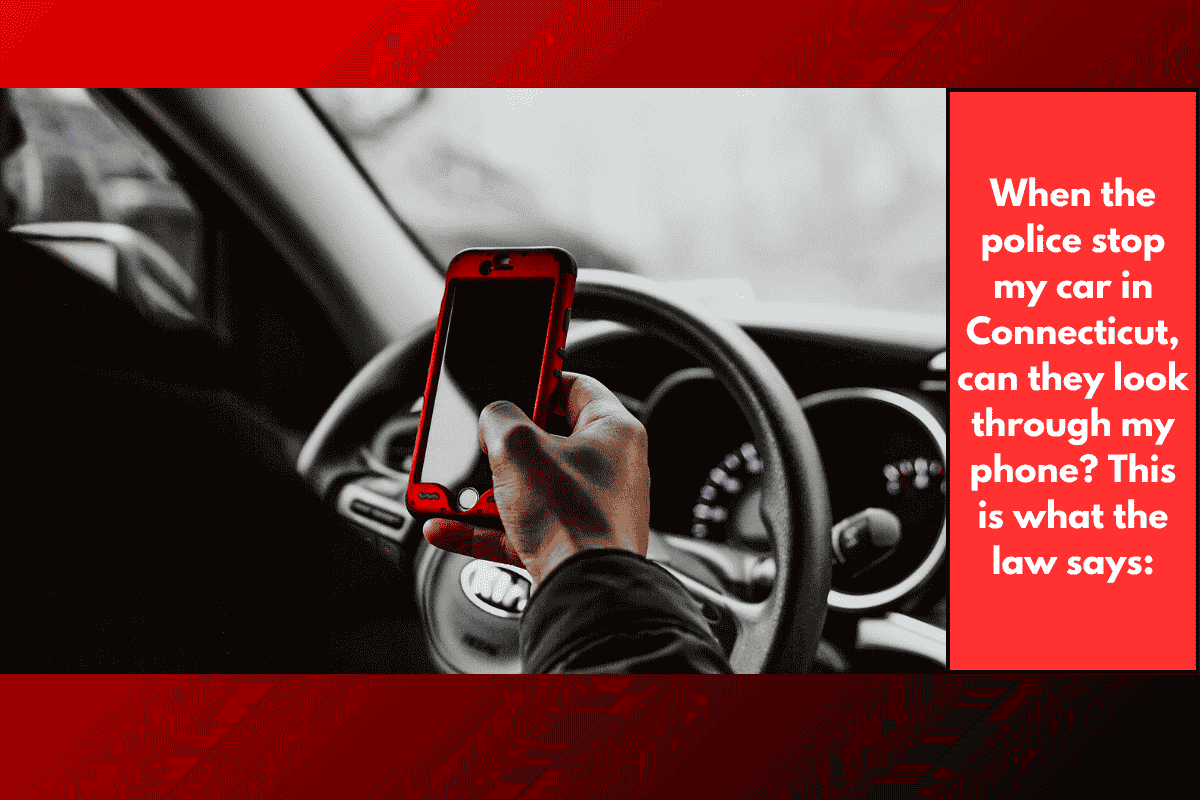Getting pulled over by the police can be stressful. One common question many people have is, “If I get stopped by the police in Connecticut, can they search my phone?” With so much personal information stored on our devices, it’s important to know your rights. Here’s what Connecticut law says about this situation — in plain and simple English.
Do Police Have the Right to Search Your Phone During a Traffic Stop?
No, police in Connecticut cannot look through your phone during a traffic stop without a warrant or your permission. Your smartphone is protected under the Fourth Amendment, which guards against unreasonable searches and seizures.
This means that unless the officer has a valid search warrant, or you agree to let them look, they legally cannot force you to hand over your phone or browse through it.
What If You’re Arrested? Can Police Then Search Your Phone?
Even if you’re arrested, police still need a warrant to search the contents of your phone. This was confirmed by the U.S. Supreme Court in a major 2014 case (Riley v. California), which applies to Connecticut and all other states.
Phones are treated differently from bags or pockets because they hold a huge amount of personal data — including messages, photos, emails, and location history. That’s why the court ruled that police must have a judge’s permission to search them.
Can Police Take Your Phone Without Looking at It?
Yes, if you’re arrested, police can confiscate your phone as evidence, but they cannot look inside it until they get a warrant. If you’re not arrested, they should not take your phone without a valid reason.
If an officer asks to hold your phone during a stop but doesn’t explain why, you have the right to politely say no unless they have legal grounds.
What If You Give Consent?
If you say “yes” and give permission, police can legally search your phone without a warrant. But you have the right to say “no” — and your refusal cannot be held against you.
Never feel pressured into handing over your phone. If you’re unsure, it’s best to say something like:
“I do not consent to a search of my phone.”
Can Police Force You to Unlock Your Phone?
This depends. Police cannot force you to give up your passcode or PIN. That’s protected under your Fifth Amendment right against self-incrimination.
However, if your phone unlocks with your fingerprint or face, some courts have allowed police to use those features. It’s a legal grey area. To be safe, you can turn off biometric unlock options and use a PIN instead.
What About During Emergencies or Accidents?
In rare situations, like serious accidents or emergencies, police may try to access your phone without a warrant — but only if they believe it’s needed to prevent danger or save lives. Even then, their actions can be challenged in court later.
In most traffic stops, there’s no urgent reason for them to access your device.
In Connecticut, police cannot search your phone during a traffic stop unless you give permission or they have a warrant. Even if you’re arrested, they still need legal approval to go through your phone’s contents. You have the right to protect your private data and say no to a search. Knowing your rights helps you stay calm, confident, and safe during any police encounter.
SOURCES
[1] https://markshermanlaw.com/blog/epic-supreme-court-decision-police-warrants-needed-to-search-cell-phones/
[2] https://www.connecticutcriminallawyer.com/blog/can-police-force-suspects-to-unlock-their-cell-phones
[3] https://www.acluct.org/en/know-your-rights/know-your-rights-stopped-police-connecticut
[4] https://www.cga.ct.gov/2024/rpt/pdf/2024-R-0119.pdf
[5] https://legiscan.com/CT/bill/HB06663/2025














